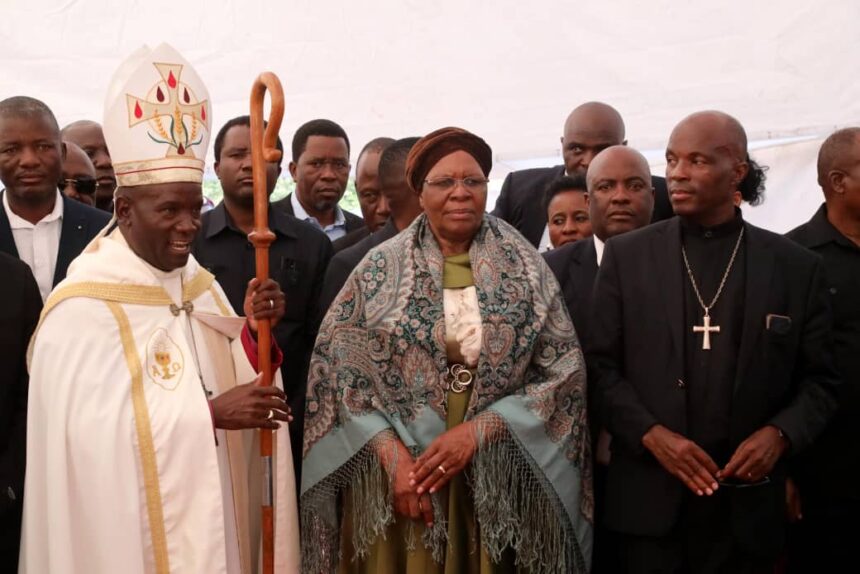Hundreds gathered at Parliament Gardens in Windhoek on Sunday to commemorate the 62nd anniversary of the African Union (AU), also known as Africa Day.
The event carried a strong and clear message: ‘Africa must rise through unity, justice and self-determination’.
It was organised through the Ministry of International Relations and Cooperation, together with African embassies in Namibia.
This year’s theme was ‘Justice for Africans and People of African Descent through Reparations’.
Keynote speaker on the day Vice president Lucia Witbooi said Africa Day is a celebration of African freedom, unity and resilience.
“25 May reminds us of the strength and unity Africans showed in freeing themselves from colonial rule,” she said. Witbooi expressed pride in joining fellow Africans to celebrate their achievements and progress.
She reminded everyone that while most African countries are free, the people of Western Sahara are still fighting for their independence.
She said Namibia stands with them.
The Vice president gave an update on Namibia’s ongoing negotiations with Germany over reparations for the 1904-1908 genocide against the Herero and Nama people.
“These talks aim to reach a fair solution that addresses the pain of the affected communities,” Witbooi added.
She said Africa must keep working together to achieve justice and development.
She encouraged countries to support the AU’s development plan known as Agenda 2063.
Witbooi touched on the African Continental Free Trade Area (AfCFTA), which is designed to help African countries trade more with one another.
“Africa is moving forward, despite challenges like tariffs and protectionism,” she said.
Restoration
Ambassador Penda Naanda, executive director in the Ministry of International Relations and Cooperation, addressed the gathering.
He described Africa Day as a celebration of African strength, culture and history.
Naanda said Africans suffered greatly under slavery and colonialism.
“For centuries, our people were uprooted, dehumanised and robbed of their identity and land,” he said.
He added that the effects are still felt today through poverty, underdevelopment and the continued exclusion of African nations from global decision-making.
“Reparations are not about revenge. They are about restoring what was broken, and fixing global inequalities,” he said.
Naanda called for lost cultural heritage to be revived and African countries to receive fair trade deals, modern technology and meaningful investment.
“People of African descent must be treated equally, wherever they live,” he said.
Naanda said Namibia’s own colonial past is a reminder of why justice and reparations matter. He urged African leaders to speak with one voice at international meetings, like those held at the United Nations and African Union.
“We must demand real action,” he said.
Action
Gonçalo Lopes, president of the World Federation of Democratic Youth (WFDY), spoke on behalf of youth.
The organisation concluded its 21st General Assembly in Windhoek yesterday.
“Liberation didn’t end with the lowering of colonial flags. The fight continues against inequality, exploitation and the silencing of progressive voices,” he said.
Lopes pointed out that young people are the majority in Africa but still face high levels of poverty, unemployment and marginalisation.
He said youth must lead the way in building a united and strong continent.
“We must make Pan-Africanism a living reality. Let us fight for quality education, green jobs, healthcare, and the protection of activists and journalists,” he said.
Lopes ended with a strong message. “The liberation of Africa is not complete until its youth are free from poverty, violence and exclusion, and free to shape their future,” he said. -ljsason@nepc.com.na


